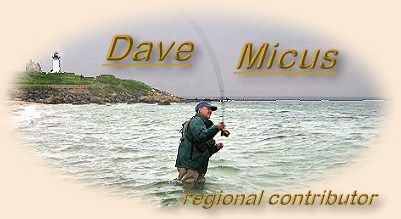|
"All men are equal before the trout," suggested
Herbert Hoover, but, while a nice sentiment, it
rings about as true as the old adage "anyone
can grow up to be president." There is a not
too subtle fishing hierarchy, and, like class
systems everywhere, is cognizant to all but
those who occupy the lower rungs. The fishing
pecking order is divided into three basic
groupings, with each of these having a sub-grouping,
a phylum and genus if
you will. The three major phylum are Commercial
Fishermen, Spin Fishermen, and, at the top, Fly
Fishermen.
The commercial fisherman occupies the lowest rung
of the fishing hierarchy and is a convenient
whipping boy for all anglers, some of which is
deserved. The draggers (genus empty
oceanus) who not only suck up every fish
in sight but also destroy the habitat and the
long liners (hog resourcesus)
who are depleting the fishing stocks deserve
all too well the scorn accorded them. But as
a striped bass fisherman I can't get too upset
over the commercial striped bass catch when
the recreational fisherman, by not practicing
catch and release, is likely killing three times
the fish that the commercial fishery is, and the
most vocal opponents of the commercial striped
bass fishery are usually the charter captains,
who obviously have their own fish to fry. I
empathize with the lobsterman and the clammer
(just gettingbyus), who are barely
making a living.
The next rung of the ladder is occupied by the
spin fisherman, with the lowest spot occupied
by those who fish with bait (worm dunkus).
These anglers are like raccoons; there are a
lot of them around but you don't see them
because they only appear at midday when the
temperature is warm and the sun is shinning,
making them somewhat harmless as they really
don't affect the fishing. You can tell where
they've been by the empty bait containers on
the ground and the red and white bobbers
dangling like Christmas ornaments from nearby
trees.
The lure fishermen (fling spoonus) are savvier
than the bait fishermen and therefore occupy a
higher spot in the hierarchy, as there is some
skill involved in the pursuit of their craft.
They chase the sport with a zeal, and some
even spend more for their supercharged metal
flaked boats than they did for their double wide.
A few, such as the surfcasters, are very nearly
on par with the salt-water fly fisherman, though
that's never to be admitted.
The Fly Fishing genus occupies the top third
of the fishing hierarchy. Adhering to a catch
and release ethos, they despise the commercial
genus, and, having spent thousands on equipment,
look down their noses at the spin fishermen
because they consider them lacking Úlan but
really because they cast farther and catch
more fish then the Fly Fisherman do.
The phylum saltwater fly fisherman (drunk
longrodus) is at the bottom of the Fly
Fishing genus because of their long casts, big
flies, splashy presentations and boorish behavior.
They drink more and bathe less than their
freshwater brethren, and all can trace their
bloodlines back to Edward Teach. They catch
the biggest fish of the fly-fishing genus, which,
paradoxically, lessens their status.
Occupying the next level of the fly fishing
hierarchy is the warm water fly fisher (float
tubus). These fishermen are the most
pleasant of all, pursuing small pan fish and
large mouth bass with the same youthful exuberance.
They are most closely related to the Saltwater
fly fisherman, but drink less and behave better.
Perched atop the Mount Olympus of fishing is the
dry fly fisherman (trout snobus).
They are easy to spot streamside, as they speak
in tongues ("the Callibaetis pacificus
is hatching!") and become apoplectic at the mention
of weighted flies and strike indicators. They
carry tiny fly rods to catch tiny fish, which
adds to their exalted status, similar to the
practice of celibacy as a sign of superiority
by some religious orders.
This, then, is the family of fishermen, with all
anglers falling predominantly within one of these
categories. And though there have been rumors of
other, more primitive, phylums, missing links who
fish for alligators with fly rods, the evidence
remains inconclusive. ~ Dave
About Dave:
 Dave Micus lives in Ipswich, Massachusetts. He is an
avid striped bass fly fisherman, writer and instructor.
He writes a fly fishing column for the Port City Planet
newspaper of Newburyport, MA (home of Plum Island and Joppa Flats)
and teaches a fly fishing course at Boston University.
Dave Micus lives in Ipswich, Massachusetts. He is an
avid striped bass fly fisherman, writer and instructor.
He writes a fly fishing column for the Port City Planet
newspaper of Newburyport, MA (home of Plum Island and Joppa Flats)
and teaches a fly fishing course at Boston University.
|



